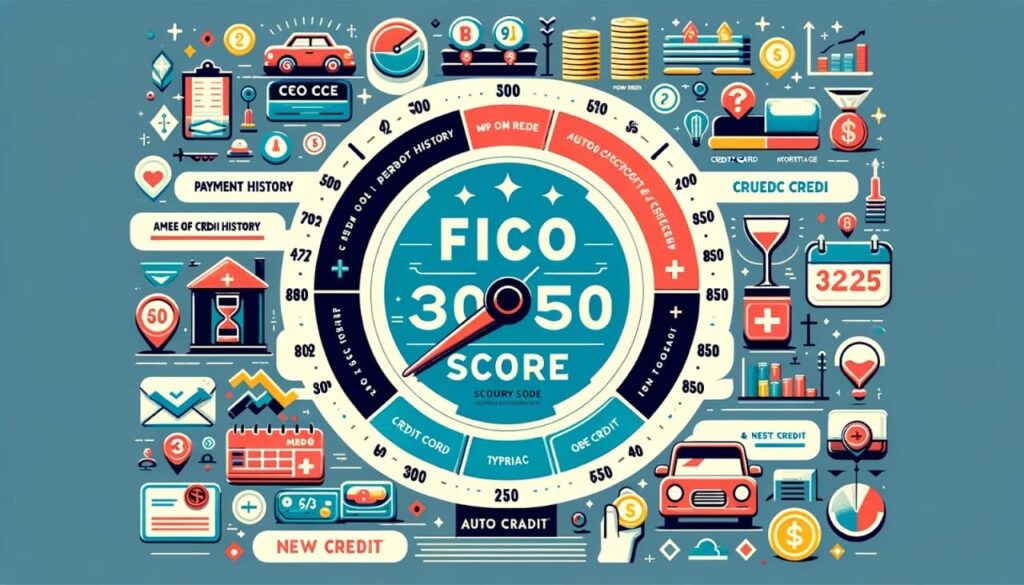When we talk about personal finance, one acronym stands out as a pivotal player: FICO Score. This trio of digits is more than just a number; it’s a barometer of your financial trustworthiness, influencing everything from the interest rates you’re offered to the credit cards you qualify for. It’s the gateway to understanding and enhancing your financial opportunities.
In this blog post, we will unwrap the layers of the FICO Score, providing clarity on its importance, the mechanics behind its calculation, and practical tips for nurturing and maintaining a score that opens doors rather than closes them.
Understanding the FICO Score
The FICO Score, crafted by the Fair Isaac Corporation, is the gold standard for credit scoring. Used by lenders to gauge credit risk, scores range from 300 to 850, with a higher score signaling less risk to creditors.
The Calculation Behind the Score
Five key factors contribute to your FICO Score: payment history (35%), credit utilization (30%), length of credit history (15%), new credit inquiries (10%), and the mix of credit (10%). This formula reflects your credit management skills across different areas.
The Significance of Your FICO Score
The following are some of the key importance of the FICO score:
(i). Gatekeeper to Financial Opportunities
A robust FICO Score can be your best ally in securing favorable terms for loans and credit cards. It’s the difference between an affordable mortgage and one that strains your budget.
(i). Beyond Loans and Credit Cards
A good score can ease the path to renting a home, securing lower insurance premiums, and sometimes, influencing your job prospects. It’s a measure of reliability that extends beyond borrowing.
Boosting Your FICO Score
One question you might have in mind could be, how to boost the score, right? Follow these simple and proven guidelines.
(i). The Path to Timely Payments
Consistently paying your bills on time is the most effective strategy for enhancing your score. It directly reflects your reliability as a borrower. Setting up automatic payments or calendar reminders can ensure you never miss a due date, further solidifying your commitment to fiscal responsibility.
(ii). Managing Your Credit Utilization
Keeping your credit utilization low demonstrates that you can handle your credit wisely without maxing out your resources. Regularly monitoring your credit balances and making more than the minimum payments can help maintain a healthier credit utilization ratio, showcasing your prudent financial management.
(iii). A Diverse Credit Portfolio
A variety of credit accounts (credit cards, auto loans, etc.) can positively impact your score by showing that you can manage different types of credit responsibly. Gradually adding diverse credit types to your portfolio and managing them well indicates to lenders your versatility in handling credit, enhancing your creditworthiness.
Navigating your financial journey with a healthy FICO Score is crucial for unlocking the best opportunities in the realm of personal finance. It requires a blend of discipline, strategic financial planning, and ongoing education. Whether you’re embarking on the journey of credit repair or aiming to maintain an exemplary score, numerous resources, and the best credit repair companies are ready to assist you. Cultivating a strong FICO Score not only enhances your financial flexibility but also solidifies your reputation as a creditworthy individual in the eyes of lenders. Take charge of your financial destiny by focusing on credit repair and seeking out the best credit repair companies to guide you toward financial empowerment.


